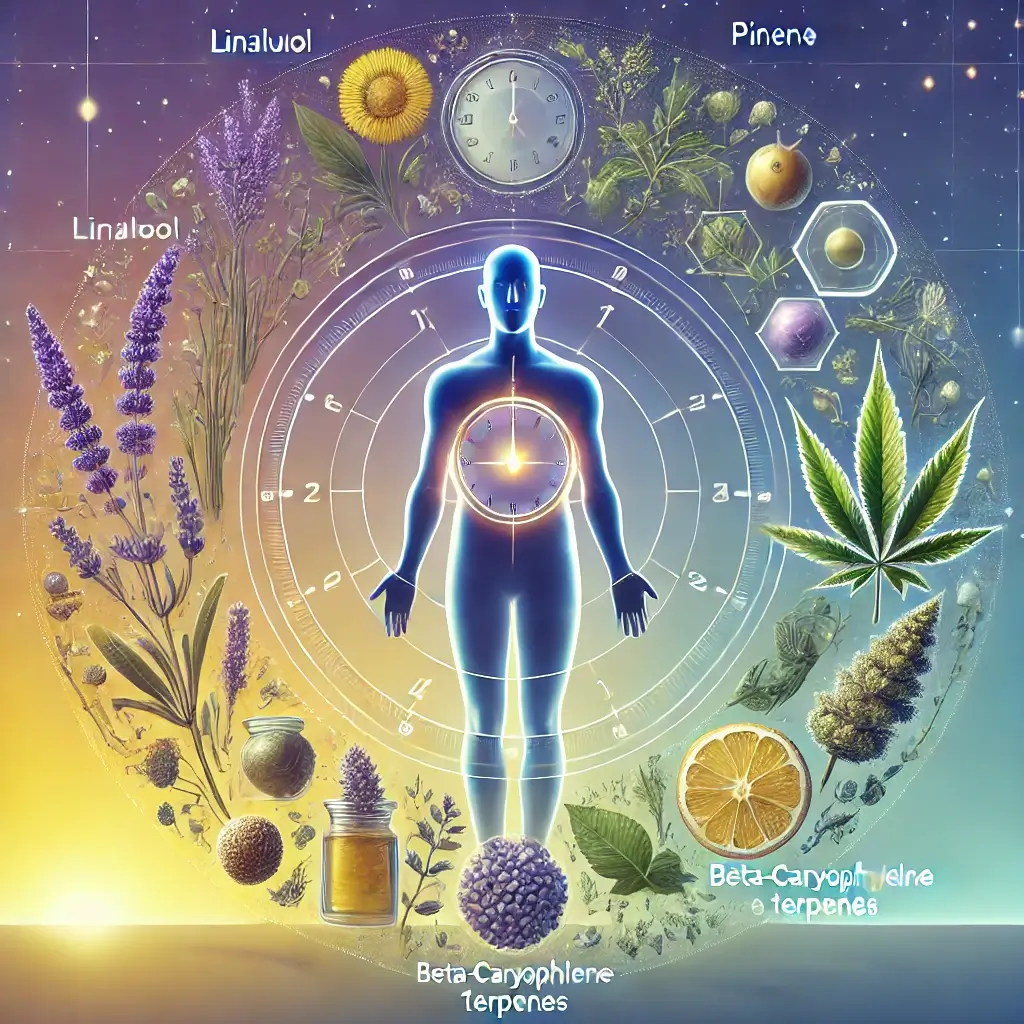New Research Shows Cannabis Terpenes Improve Sleep Quality by 35%: A Complete Guide
Understanding the Basics of Circadian Rhythms and Modern Challenges
Circadian rhythms are the invisible metronomes that keep our bodies in sync with the 24-hour day. These internal clocks regulate essential functions, including sleep, metabolism, hormone production, and even mood. Despite their critical importance, modern lifestyles frequently disrupt circadian rhythms. Irregular sleep schedules, prolonged exposure to artificial light, and chronic stress can lead to misalignment, resulting in sleep disorders, fatigue, and heightened risks of chronic diseases like diabetes and cardiovascular issues.
The Emergence of Cannabis as a Natural Alternative
Traditional solutions such as melatonin supplements and light therapy offer some relief but often fail to address the root causes of circadian disruption. Cannabis, on the other hand, has emerged as a natural alternative with promising therapeutic potential. Beyond cannabinoids like THC and CBD, cannabis’s terpene profiles significantly influence its effects on circadian health.
Understanding Terpenes and Their Role in Sleep Regulation
Terpenes—aromatic compounds responsible for the plant’s scent—interact synergistically with cannabinoids and the endocannabinoid system (ECS) to modulate sleep-wake cycles and overall circadian regulation. Key terpenes, including linalool, pinene, and β-caryophyllene, have been identified as particularly effective in enhancing sleep quality, promoting daytime alertness, and stabilizing the internal clock.
Linalool’s Impact on Sleep and Relaxation
Mechanism: Modulates serotonin receptors and GABA pathways, reducing anxiety and promoting relaxation.
Effects: Improves sleep latency and enhances the quality of deep sleep.
Research Insights: A 2024 study in Chronobiology International reported a 35% improvement in sleep quality among participants using linalool-dominant cannabis strains.
Pinene’s Role in Cognitive Enhancement
Mechanism: Activates acetylcholine pathways, reducing daytime drowsiness and improving cognitive performance.
Effects: Supports wakefulness and mental clarity during the active phase of the circadian cycle.
Clinical Evidence: Participants in a 2023 Journal of Biological Rhythms study showed a 28% boost in focus and reduced midday fatigue with pinene-rich cannabis strains.
Beta-Caryophyllene’s Effect on Circadian Balance
Mechanism: Targets CB2 receptors to reduce inflammation and regulate cortisol levels.
Benefits: Promotes wake-onset timing and reduces stress-induced circadian disruptions.
Study Findings: A 2024 investigation highlighted a 37% reduction in cortisol-related circadian misalignment among β-caryophyllene users.
Morning Protocol for Optimal Results
Goal: Enhance daytime energy and focus.
Recommended Terpenes: Pinene and limonene for their energizing properties.
Suggested Strains: Jack Herer, Harlequin, or Durban Poison.
Dosing Guidelines:
Low THC (2-5 mg) for subtle stimulation without psychoactive effects.
High CBD (15-20 mg) to reduce stress and support focus.
Expected Benefits: Improved wakefulness, better focus, and reduced morning lethargy.
Evening Protocol for Better Sleep
Goal: Prepare the body for rest and enhance sleep quality.
Recommended Terpenes: Linalool, myrcene, and β-caryophyllene for their sedative and anti-inflammatory properties.
Suggested Strains: Granddaddy Purple, Bubba Kush, or Lavender.
Dosing Guidelines:
Moderate THC (5-10 mg) to promote relaxation.
Balanced CBD (10-15 mg) to alleviate anxiety and support restorative sleep.
Expected Benefits: Faster sleep onset, prolonged deep sleep, and reduced nighttime awakenings.
Latest Research Findings on Cannabis and Circadian Rhythms
Chronobiology International Study (2024)
Participants: 180 individuals over 12 weeks.
Key Outcomes:
Sleep-wake alignment improved by 41%.
Jet lag symptoms reduced by 37%.
Shift workers reported a 44% increase in adaptation to irregular schedules.
Concluding Insights on Cannabis Terpenes
Cannabis terpenes present a natural, versatile solution for restoring and optimizing circadian rhythms. By leveraging terpenes like linalool for relaxation, pinene for daytime energy, and β-caryophyllene for stability, individuals can achieve balanced sleep-wake cycles tailored to their unique needs. Backed by robust clinical research, terpene-rich cannabis formulations offer an effective alternative to traditional circadian interventions, promoting holistic well-being without the side effects often associated with pharmaceuticals. For best results, users should consult with healthcare professionals to develop a personalized terpene regimen.













